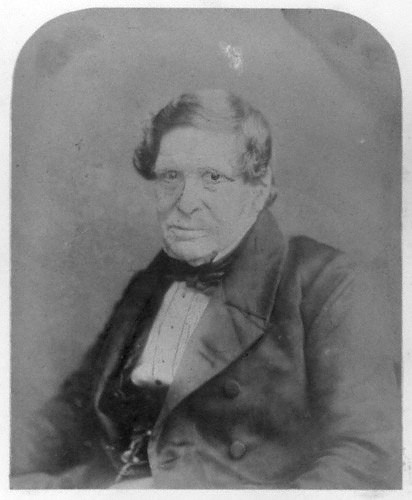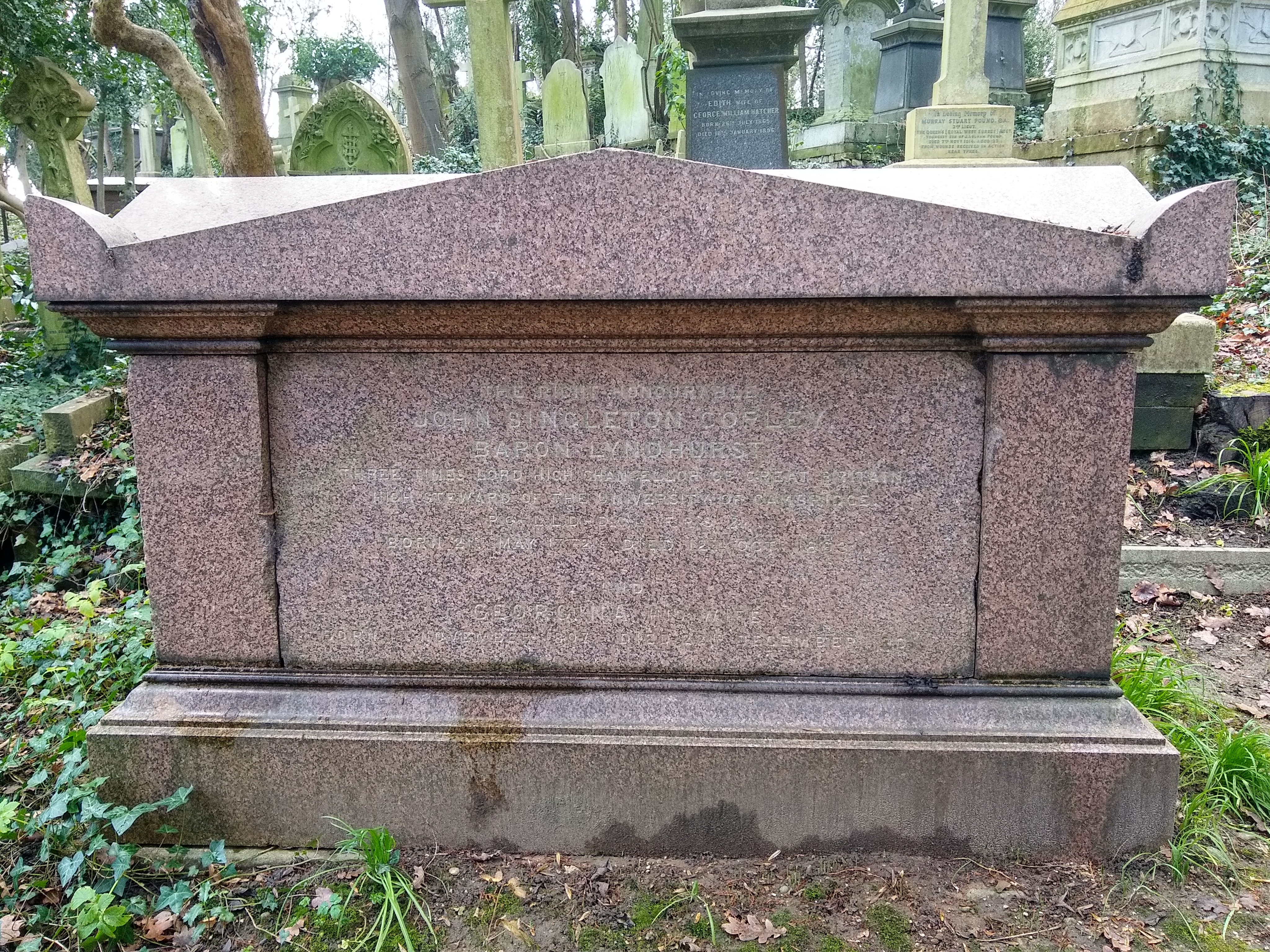Lord Lyndhurst on:
[Wikipedia]
[Google]
[Amazon]
John Singleton Copley, 1st Baron Lyndhurst, (21 May 1772 – 12 October 1863) was a British lawyer and politician. He was three times

 After 1846 and the disintegration of the Tory party over Peel's adoption of free trade, Lord Lyndhurst did not attend parliament sessions as often, but he continued to take a lively interest in public affairs and to make speeches. His address to the House of Lords on 19 June 1854, on the war with Russia, made a sensation in Europe, and throughout the
After 1846 and the disintegration of the Tory party over Peel's adoption of free trade, Lord Lyndhurst did not attend parliament sessions as often, but he continued to take a lively interest in public affairs and to make speeches. His address to the House of Lords on 19 June 1854, on the war with Russia, made a sensation in Europe, and throughout the
Lord High Chancellor of Great Britain
The lord chancellor, formally the lord high chancellor of Great Britain, is the highest-ranking traditional minister among the Great Officers of State in Scotland and England in the United Kingdom, nominally outranking the prime minister. The ...
.
Background and education
Lyndhurst was born inBoston
Boston (), officially the City of Boston, is the state capital and most populous city of the Commonwealth of Massachusetts, as well as the cultural and financial center of the New England region of the United States. It is the 24th- mo ...
, Massachusetts, the son of painter John Singleton Copley and his wife Susanna Farnham (née Clarke), granddaughter of silversmith Edward Winslow
Edward Winslow (18 October 15958 May 1655) was a Separatist and New England political leader who traveled on the ''Mayflower'' in 1620. He was one of several senior leaders on the ship and also later at Plymouth Colony. Both Edward Winslow and ...
. His father left America to live in London in 1774, and his wife and son followed a year later. Copley was educated at a private school and Trinity College, Cambridge
Trinity College is a constituent college of the University of Cambridge. Founded in 1546 by King Henry VIII, Trinity is one of the largest Cambridge colleges, with the largest financial endowment of any college at either Cambridge or Oxford. ...
, where he graduated as second wrangler.
Political and legal career
Called to the bar at Lincoln's Inn in 1804, he gained a considerable practice. He was appointed aserjeant-at-law
A Serjeant-at-Law (SL), commonly known simply as a Serjeant, was a member of an order of barristers at the English and Irish Bar. The position of Serjeant-at-Law (''servientes ad legem''), or Sergeant-Counter, was centuries old; there are wri ...
on 6 July 1813. In 1817, he was one of the counsel for Dr J. Watson, tried for his share in the Spa Fields riots
The Spa Fields riots were incidents of public disorder arising out of the second of two mass meetings at Spa Fields, Islington, England on 15 November and 2 December 1816.
The meetings had been planned by a small group of revolutionary Spenceans, ...
. Lyndhurst's performance attracted the attention of Lord Castlereagh
Robert Stewart, 2nd Marquess of Londonderry, (18 June 1769 – 12 August 1822), usually known as Lord Castlereagh, derived from the courtesy title Viscount Castlereagh ( ) by which he was styled from 1796 to 1821, was an Anglo-Irish politician ...
and other Tory
A Tory () is a person who holds a political philosophy known as Toryism, based on a British version of traditionalism and conservatism, which upholds the supremacy of social order as it has evolved in the English culture throughout history. The ...
leaders, and he entered parliament as member for Yarmouth in the Isle of Wight
The Isle of Wight ( ) is a county in the English Channel, off the coast of Hampshire, from which it is separated by the Solent. It is the largest and second-most populous island of England. Referred to as 'The Island' by residents, the Isle of ...
. He afterwards sat for Ashburton (1818–1826) and for Cambridge University
, mottoeng = Literal: From here, light and sacred draughts.
Non literal: From this place, we gain enlightenment and precious knowledge.
, established =
, other_name = The Chancellor, Masters and Schola ...
(1826–1827).
In December 1818, Copley was made King's Serjeant
A Serjeant-at-Law (SL), commonly known simply as a Serjeant, was a member of an order of barristers at the English and Irish Bar. The position of Serjeant-at-Law (''servientes ad legem''), or Sergeant-Counter, was centuries old; there are wr ...
and Chief Justice of Chester. He became Solicitor General on 24 July 1819 and was knighted in October, became Attorney General in 1824, Master of the Rolls
The Keeper or Master of the Rolls and Records of the Chancery of England, known as the Master of the Rolls, is the President of the Civil Division of the Court of Appeal of England and Wales and Head of Civil Justice. As a judge, the Master of ...
in 1826 and Lord Chancellor
The lord chancellor, formally the lord high chancellor of Great Britain, is the highest-ranking traditional minister among the Great Officers of State in Scotland and England in the United Kingdom, nominally outranking the prime minister. The ...
in 1827. On his appointment to the latter post he was raised to the peerage as Baron Lyndhurst, of Lyndhurst in the County of Southampton
Hampshire (, ; abbreviated to Hants) is a ceremonial and non-metropolitan county in western South East England on the coast of the English Channel. Home to two major English cities on its south coast, Southampton and Portsmouth, Hampshire is ...
. As solicitor-general he took a prominent part in the trial of Queen Caroline and was opposed to the Liberal measures which marked the end of the reign of George IV
George IV (George Augustus Frederick; 12 August 1762 – 26 June 1830) was King of the United Kingdom of Great Britain and Ireland and King of Hanover from the death of his father, King George III, on 29 January 1820, until his own death ten y ...
and the beginning of that of William IV
William IV (William Henry; 21 August 1765 – 20 June 1837) was King of the United Kingdom of Great Britain and Ireland and King of Hanover from 26 June 1830 until his death in 1837. The third son of George III, William succeeded h ...
. He was Lord Chief Baron of the Exchequer
The Chief Baron of the Exchequer was the first "baron" (meaning judge) of the English Exchequer of Pleas. "In the absence of both the Treasurer of the Exchequer or First Lord of the Treasury, and the Chancellor of the Exchequer, it was he who ...
from 1831 to 1834. During the Melbourne
Melbourne ( ; Boonwurrung/Woiwurrung: ''Narrm'' or ''Naarm'') is the capital and most populous city of the Australian state of Victoria, and the second-most populous city in both Australia and Oceania. Its name generally refers to a met ...
government from 1835 to 1841 he figured conspicuously as an obstructionist in the House of Lords
The House of Lords, also known as the House of Peers, is the Bicameralism, upper house of the Parliament of the United Kingdom. Membership is by Life peer, appointment, Hereditary peer, heredity or Lords Spiritual, official function. Like the ...
. His former adversary Lord Brougham, disgusted at his treatment by the Whig leaders, soon became his most powerful ally in opposition. Lyndhurst held the chancellorship from 1827 to 1830, 1834–1835, and 1841–1846. As he was in regard to Catholic emancipation, so in the agitation against the Corn Laws
The Corn Laws were tariffs and other trade restrictions on imported food and corn enforced in the United Kingdom between 1815 and 1846. The word ''corn'' in British English denotes all cereal grains, including wheat, oats and barley. They wer ...
, he opposed reform until Peel, his chief, gave the signal for concession. In 1837 he was Rector of Marischal College (later Aberdeen University).

 After 1846 and the disintegration of the Tory party over Peel's adoption of free trade, Lord Lyndhurst did not attend parliament sessions as often, but he continued to take a lively interest in public affairs and to make speeches. His address to the House of Lords on 19 June 1854, on the war with Russia, made a sensation in Europe, and throughout the
After 1846 and the disintegration of the Tory party over Peel's adoption of free trade, Lord Lyndhurst did not attend parliament sessions as often, but he continued to take a lively interest in public affairs and to make speeches. His address to the House of Lords on 19 June 1854, on the war with Russia, made a sensation in Europe, and throughout the Crimean War
The Crimean War, , was fought from October 1853 to February 1856 between Russia and an ultimately victorious alliance of the Ottoman Empire, France, the United Kingdom and Piedmont-Sardinia.
Geopolitical causes of the war included the ...
he was a strong advocate of the energetic prosecution of hostilities. In 1859 he denounced Napoleon III
Napoleon III (Charles Louis Napoléon Bonaparte; 20 April 18089 January 1873) was the first President of France (as Louis-Napoléon Bonaparte) from 1848 to 1852 and the last monarch of France as Emperor of the French from 1852 to 1870. A nephew ...
. His last speech was delivered in the House of Lords at the age of eighty-nine.
Family
In 1819 Lord Lyndhurst married Sarah, a daughter of Charles Brunsden and widow of Lieutenant-Colonel Charles Thomas, who was killed at Waterloo. She died in 1834, and three years later, in August 1837, he married secondly Georgiana Goldsmith (1807–1901), daughter of writer Lewis Goldsmith, of Paris. They had one daughter, Georgiana Susan Copley, who married Sir Charles Du Cane, Governor of Tasmania. Since his second wife came from a family of Jewish origins, it may be her influence which led Lyndhurst to support the Jewish Emancipation of 1858, when the law which had restricted the Parliamentary oath of office to Christians was changed, leading to the admission of Jews into parliament. Lyndhurst also advocated women's rights in questions of divorce. He died in London on 12 October 1863 and was buried inHighgate Cemetery
Highgate Cemetery is a place of burial in north London, England. There are approximately 170,000 people buried in around 53,000 graves across the West and East Cemeteries. Highgate Cemetery is notable both for some of the people buried there as ...
; as he left no son, his peerage became extinct. Lady Lyndhurst died in London 22 December 1901, aged 94.
Arms
References
*Further reading
*Dennis Lee: ''Lord Lyndhurst: The Flexible Tory'' – , 318 pages – 1994 Niwot (Colorado): University Press of Colorado.External links
* * , - , - , - {{DEFAULTSORT:Lyndhurst, John Copley, 1st Baron Lord chancellors of Great Britain Members of the Parliament of the United Kingdom for Ashburton Members of the Parliament of the United Kingdom for the University of Cambridge Alumni of Trinity College, Cambridge Barons in the Peerage of the United Kingdom Fellows of the Royal Society 1772 births 1863 deaths Lawyers from Boston Attorneys General for England and Wales 19th-century British lawyers Chief Barons of the Exchequer English people of Irish descent English Anglicans Knights Bachelor American emigrants to England UK MPs 1812–1818 UK MPs 1818–1820 UK MPs 1820–1826 UK MPs 1826–1830 UK MPs who were granted peerages Second Wranglers Serjeants-at-law (England) Solicitors General for England and Wales Masters of the Rolls Burials at Highgate Cemetery Tory members of the Parliament of the United Kingdom Members of the Privy Council of the United Kingdom Rectors of the University of Aberdeen Members of the Judicial Committee of the Privy Council Peers of the United Kingdom created by George IV